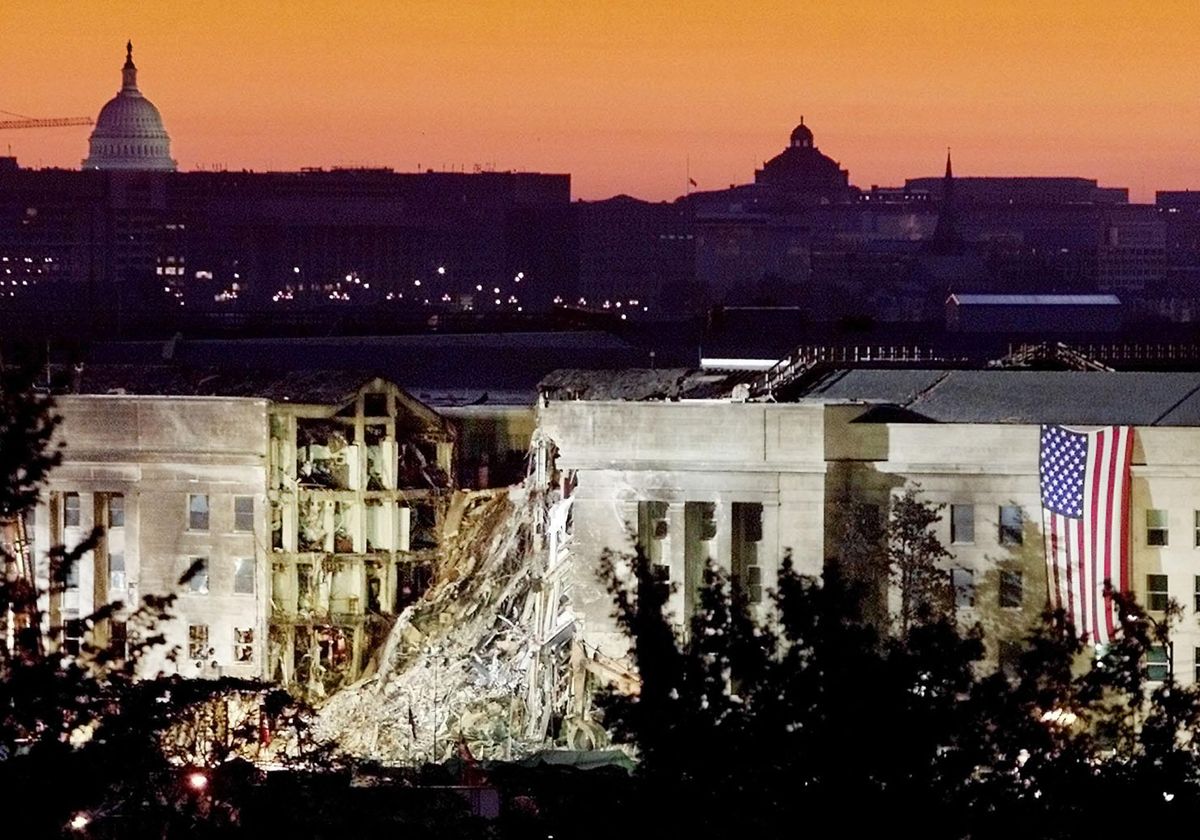In 2001, I was US National Intelligence Officer for Economics, and had spent much of that summer traveling in China. At the time, all signs were pointing to China becoming the predominant focus of the George W. Bush administration, and I needed to become much more conversant with the workings of the Chinese economy.
All of that changed on September 11th, just five days after I returned to Washington. For national crisis contingencies, I had an additional assignment that would turn out to be crucial that day: I was the liaison between the intelligence community and the Congressional leadership.
As a result, a few hours after the planes hit the Twin Towers and the Pentagon, I provided the initial briefing for the House and Senate leadership (who along with all Members had been evacuated from Washington to a "secure location") on exactly what had happened, how it happened, and why we had been unable to prevent it.
This was one of the toughest briefs I ever had to present. We had warned President Bush that al-Qaeda was planning a major attack, but we had failed to penetrate the small, self-contained group that was planning and undertaking the operation. It was exceptionally well-conceived and executed.
So much for my personal experience of 9/11 — the events of that day also had a profound effect on many aspects of US foreign policy. For one thing, 9/11 marked the end of the post-Cold War period of intense debate over the basic strategic focus of national security policy. NATO expansion, humanitarian intervention, the promotion of multilateralism, and how to engage both Russia and a rising China were all hot topics at the time. But after 9/11, all of these issues took a back seat to counter-terrorism, which became the focus of US grand strategy. That remained true at least until President Obama re-opened the debate with his only partially-achieved "pivot to Asia," which began in 2013.
The 9/11 attacks also enormously changed the world of economic intelligence. China became less important to us as the focus shifted to identifying and disrupting terrorist financing. This gave rise to the very close and continuing partnership between intelligence and the Treasury, and the beginnings of a whole new phase of muscular and often coercive financial diplomacy, enabled by intelligence. The main impact of this has been not in the counter-terrorism space at all, but in much broader themes, especially around the use of targeted financial sanctions and leveraging access to the US economy and financial system. It is no exaggeration to say that without the huge upgrading of financial intelligence following 9/11, the entire suite of coercive financial instruments that are now in common use would not have been developed.
9/11 also dramatically altered the trajectory of US-China relations, but in a positive direction. What I had learned in the summer of 2001 on China did not go to waste, as I was given the deputy role in the then-flourishing US-China Strategic Dialogue when I moved to State as policy planning director in 2007. The decade following 9/11 was marked by growing and sustained collaboration between Beijing and Washington, driven by mutual concerns about terrorism.
But the limits of Beijing's interest in US–China cooperation began to be reached even before Xi Jinping came to power in 2012. By President Obama's second term, the debate around Washington's China policy had returned to where it was just before 9/11, with hawks and doves contending within both Republican and Democratic national security elites. But during that 12-year period China had become a substantially more powerful actor, and had become comfortable with not being the focal point of US policy and strategy. Both Obama and Trump shifted to much more pessimistic views of China over the course of their presidencies; and all of President Biden's China team comes from the hawkish wing of Democratic China hands.
And one last thing, in conclusion: the US counterterrorism strategy worked in one very important respect. In the face of the rising challenges from China, both Trump and Biden have sought to cast US counter-terrorism efforts after 9/11 as excessive distractions; "forever wars." But on 9/11/2021, even as we remember the horrific images of death and destruction from that infamous day twenty years ago, we need to acknowledge the success of post 9/11 counter-terrorism efforts, especially in protecting the US homeland. Back in 2001, there were few, if any, observers who were predicting that there would not be another substantial Islamist extremist attack on US soil in twenty years.
David F. Gordon is a Senior Adviser to Eurasia Group, and was Director of Policy Planning at the State Department during the George W. Bush administration.


















